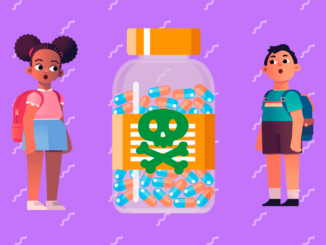
Safe disposal drug take-back bins keep communities safe and clean
by Anne Stokes
We talked to Spencer Silverstein, sustainability analyst with the City of Thousand Oaks’ Public Works Department, to get an idea how they help.
“I think one of the really positive points of this program is that it’s user friendly.”
Spencer Silverstein, Sustainability analyst, Thousand Oaks Public Works Department
How do safe disposal drug take-back bins benefit the communities they’re in?
Keeping these medications out of the hands of the nonprescribed people who ingest them is a paramount concern, especially because of the potential for abuse and or addiction. It can even be accidental ingestion by children or pets.
There’s the potential for theft because they do have street value, so there’s the nefarious criminal activity that exists with them. And there are the environmental impacts. Our wastewater treatment plants are not designed to accept those types of incoming materials in wastewater streams. Many pharmaceuticals end up bioaccumulated in the water supply.
Why did Thousand Oaks implement the Med Bin program?
We were aware there was only one bin in the city for medications for 130,000 residents. That doesn’t really meet the convenient standard that should exist for take-back programs.
It was becoming problematic for [the Thousand Oaks Police Department] to manage it. This program really introduced a financial and operational process that they value, so much so that my contact at the Thousand Oaks Police Department [implemented it] throughout the rest of the sheriff’s department and county and there are five or six additional bins throughout the county at other law enforcement offices.
What kinds of materials can the bin accept?
Prescription medications, over-the-counter medications, and any type of medicated ointments or lotions. We instruct the public to tightly seal them in their original containers. Any type of pet medications and any type of schedule II through IV controlled substances, such as oxycodone, codeine, amphetamines.
What types of materials can’t be left in the take-back bins?
The bins are not designed for medical sharps or other types of hypodermic needles, syringes, auto-injectors like Epi-Pens. Any iodine containing medications are not meant to be disposed of in the bins, same with thermometers, mercury or non-mercury types. And we certainly don’t want anything in a compressed-gas cylinder like asthma inhalers.
What are host sites responsible for doing?
I think one of the really positive points of this program is that it’s user friendly. Essentially, you apply to be a host site, and the bin is funded for you, it’s dropped off at your location, it’s ready to go with all the signage and everything on it, instructions, etc. Once the bin is full, staff at the host site unlocks the front door, takes the box full of medications out, seals it without having to touch anything inside, orders the pick-up and you’re done.
Is there any assistance available for host sites?
Sites can contact Drug Takeback Solutions Foundation and MED-Project.
To find a bin near you, go to medtakebackcalifornia.org.
Read more stories about med bins in Los Angeles and Ventura counties.
Brought to you by the California Drug Take-Back Program and the California Product Stewardship Council.
Recent facebook posts from California Product Stewardship Council

The California Product Stewardship Council (CPSC) is a powerful network of local governments, non-government organizations, businesses, and individuals supporting policies and projects where producers share in the responsibility for managing problem products at their end of life.
CPSC is California’s thought leader and expert on Product Stewardship and the Extended Producer Responsibility (EPR) movement.
EPR enjoys the support of more than 26 million Californians. That’s nearly 70% of the state's population! Nearly 150 resolutions have been passed by California local jurisdictions and organizations supporting a more sustainable and toxic free environment through product stewardship. CPSC works closely with companies who have redesigned products for reuse as well as those who have established pilot or permanent collection programs with some sharing of costs with others in the product chain.
California Product Stewardship Council


